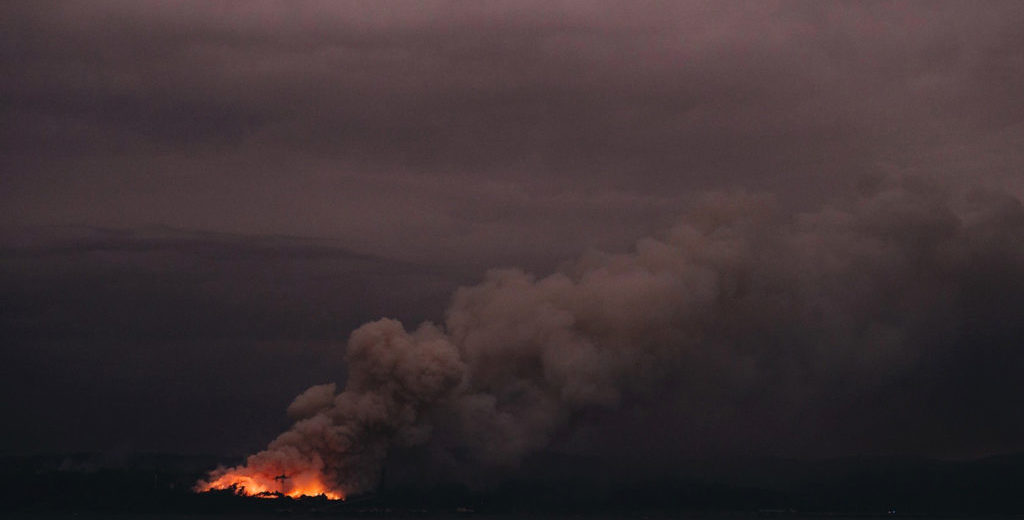by Tiffani Patton
“Our memories, our sacred places, we are losing what forever connects us to a place in the landscape.” – Lorena Allam, descendent of the Gamilaraay and Yawalaraay nations
We are living in the age of ongoing climate catastrophes, from fires in Australia to floods in Jakarta, happening frequently enough that they are starting to feel like the new normal. We are experiencing climate grief on an existential level. For the First Nations People of Australia and around the world, these disasters bring a familiar sadness and anger: what do you do when your home is destroyed, your sacred monuments go up in flames, and your culture is ripped away?
Colonialism and capitalism have ravaged the world, attempting to control both Nature and people to extract maximum profit. Throughout time, Indigenous knowledge and ways of living, like the sustainable practice of controlled burns, have been forcibly subdued, and even criminalized. But in the face of climate-fueled disasters, Indigenous knowledge is being revitalized. People are beginning to recognize that there are other ways to live, and we have to support them if we want to survive—but we have to do more than recognize them, we have to decolonize our thinking and our organizing. We can turn our collective grief into collective action by supporting the political sovereignty of Indigenous people, ensuring that they have the power to protect their homelands—and our planet.
Watch this video of the Yuin Indigenous Australians who gathered together for a dance of healing, to bring life back to scorched earth.
Header photo by Australian Department of Defence/Handout/AFP/Getty Images.



